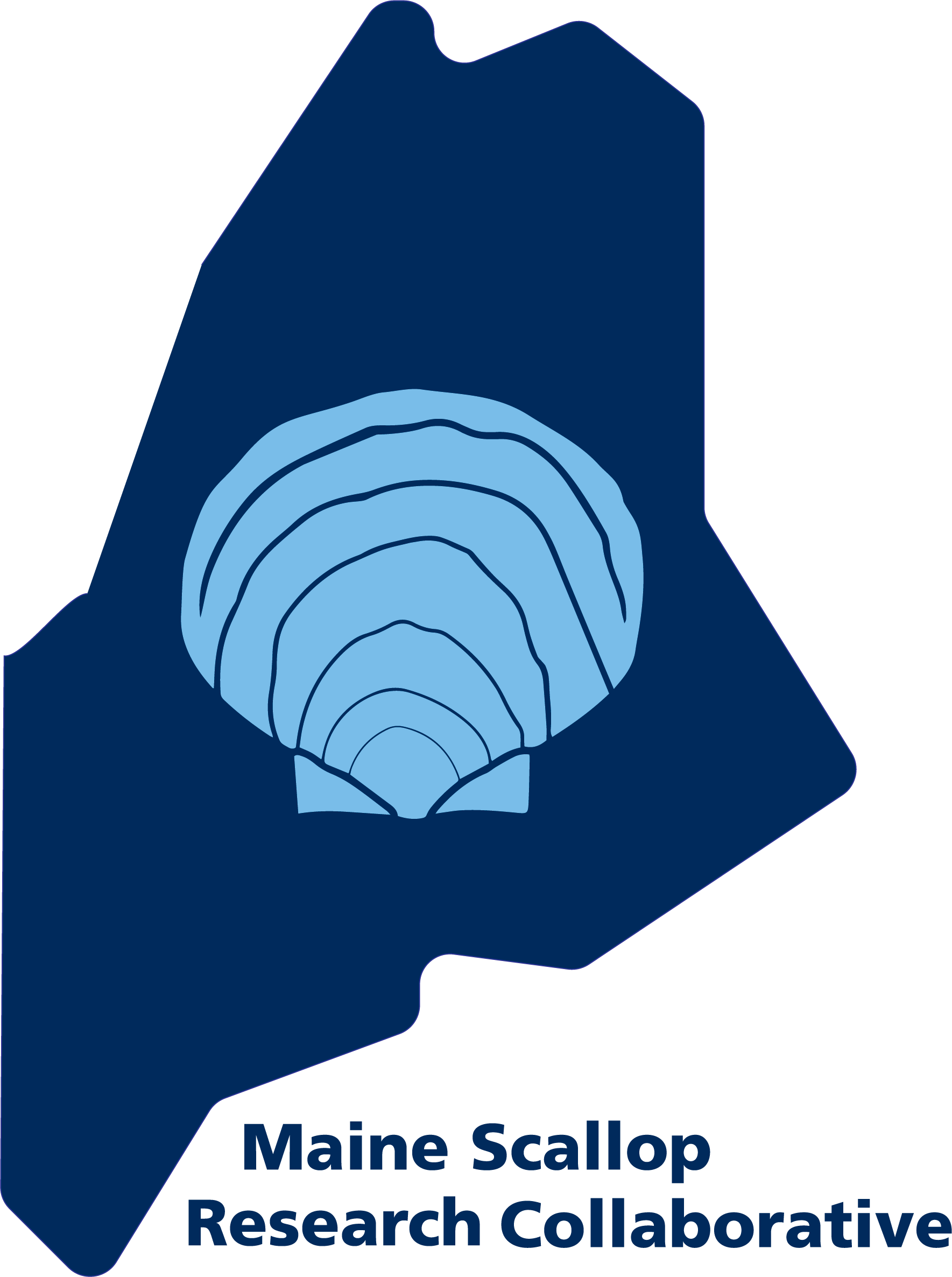
Scallop Research Collaborative
Lead PI: Meggan Dwyer
Co-PI: Phoebe Jekielek
Abstract: The Atlantic sea scallop (Placopecten magellanicus) fishery is the largest and most valuable wild scallop fishery in the world (NOAA Fisheries, Greater Atlantic Region, 2019). In Maine, the sea scallop fishery has been a source of income for Maine’s fishing communities, second in value only to the state’s lobster fishery. However, there is much uncertainty associated with the traditional wild caught Atlantic scallop fisheries and the adoption of scallop aquaculture is increasing along the coast of Maine. There are currently 36 experimental, standard or limited purpose leases with scallops identified as the primary species for aquaculture (ME DMR, 2019). With proper development, it is projected that scallop aquaculture in Maine has the potential to double the volume and total value of Maine scallops by 2030, while maintaining a price premium and extending the availability of consumable product to year round (Hale Group, Shellfish Market Analysis, 2016). However, this projection will only be met with further development of scallop farming infrastructure and by addressing bottlenecks that affect both sectors. For example, currently, both the wild and aquaculture scallop industries rely on the capture of wild spat to support harvesting efforts and hatchery production of scallop seed remains unsuccessful. Furthermore, spat collection varies from year to year. As successful scallop culture consists of seed procurement, grow-out, and harvest, reliance on a variable wild set is a potential bottleneck for consistent culture production and presents a possible conflict with the wild fishery. Other research themes that affect fishermen and aquaculturists are: Biotoxin testing and mitigation; spat recruitment and transport; influence of scallop farms on enhancement of wild populations; specialty product marketing (e.g. whole or roe-on); ecosystem change and its implications for habitat suitability; scallop diseases and parasites; market analyses for various Maine scallop products and factors affecting reproduction and growth.
Project Website: https://umaine.edu/aquaculture/scallop-research-collaborative/
Project Dates: 1/1/21 – 9/1/22
Project Funding: USDA Northeast Regional Aquaculture Center

